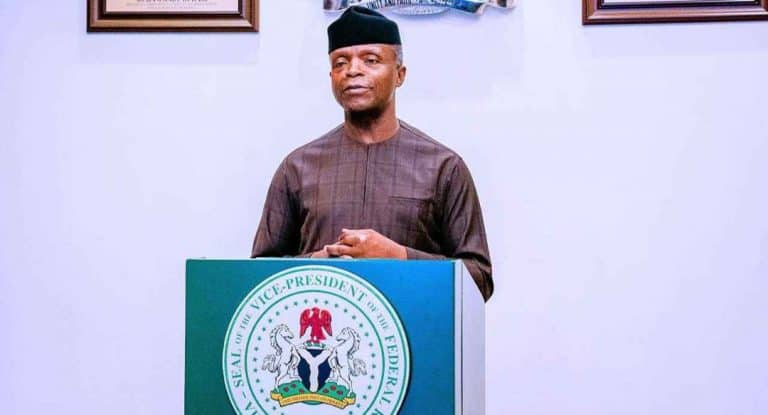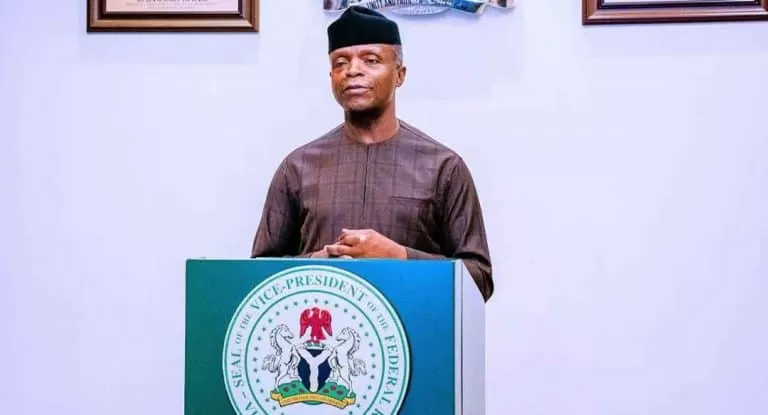

Last updated on September 11th, 2021 at 02:45 pm
From the Vice President, Yemi Osinbajo-led Committee on Economic Sustainability Plan came warning that about 39.4 million people might be unemployed by the end of 2020, if the government failed to take preemptive measures.
The panel also warned that millions of other citizens might fall into extreme poverty before the coronavirus pandemic ends, as Gross Domestic Product (GDP) slides to between minus 4.40 per cent and minus 8.91 per cent.
According to the committee, the severity of the situation will depend on the length of the lockdown period and strength of the country’s economic response.
In its report presented to President Muhammadu Buhari yesterday, the Osinbajo panel predicated its position on the mandatory lockdowns and social distancing measures put in place to curb the spread of COVID-19 which, it said, had had negative impact on farms and factories, as well as on trade, transport and tourism.
The panel said several projections, including those done by the National Bureau of Statistics (NBS) on behalf of the Economic Sustainability Committee, showed severe downturn in the nation’s oil earnings, as a result of which, even with oil price at $30 a barrel, the country would still have a shortfall of about N185 billion every month, in the amount available for allocation to the three tiers of government.
It was against this background that the committee decided on a strategy hinged on Mr. President’s mantra to “produce what we eat and consume what we produce”.
The panel, therefore, recommended the creation of millions of new jobs, focus on encouraging local production, local services, local innovation, and emphasis on use of local materials. “Nigeria and Nigerians can produce our food, build our houses and construct our roads, using local materials in all cases. “If we must import, it must be to support local production.
We have, therefore, recommended that we must carry out mass programmes that create jobs and utilise local materials,” the Osinbajo committee said.
In his report to President Buhari, the president of ECOWAS Commission advocated additional strategies to assist the sub-region in fighting the health and economic impact of COVID-19.
According to Kassi-Brou, these include, the need for advocacy at continental and global levels particularly with the G20, World Bank, United Nations and the African Development Bank, among others, for support to negate the health and economic damage to the ECOWAS sub-region.
He also called for mass awareness campaign to achieve behavioural change among the citizens of the community with effective customs, security and health protocols put in place throughout the sub-region.
(Guardian)
National teams from Africa advance their World Cup qualification pursuit as they take part in Matchday 5 of the qualifiers.…
Creative Africa Nexus (CANEX) is running the Book Factory Prize for Publishing in Africa again to award $28,000 to African…
Canadian companies have expanded their presence as major African mining stakeholders and invested more than $37 billion. Africa holds the…
The South African government wants people to plant one million trees across the nation within a single day on September…
The government's statistics regulator showed that South African inflation stayed at 3.2% during February and rose below the projected 3.3%.…
Keywords: Cape Town, African Energy Chamber, Africa, The 2025 African Energy Week (AEW) will host the top energy leaders from…
This website uses cookies.